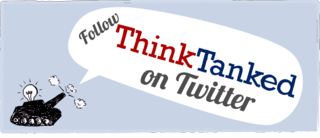 Getting Specific: How to Fix the Budget (New America Foundation) While the threats from budget deficits as far as the eye can see and a ballooning national debt are on the public's mind, there is still too little discussion about how to actually fix the problems. In fact, when it comes to specifics, most politicians are more likely to embrace changes that would make the deficit situation worse, not better.
Getting Specific: How to Fix the Budget (New America Foundation) While the threats from budget deficits as far as the eye can see and a ballooning national debt are on the public's mind, there is still too little discussion about how to actually fix the problems. In fact, when it comes to specifics, most politicians are more likely to embrace changes that would make the deficit situation worse, not better.
Russia and the Rule of Law (Hudson Institute) In 2003, Mikhail Khodorkovsky, once one of Russia's wealthiest businessmen as head of YUKOS Oil, was arrested on what most analysts considered trumped up and politically motivated charges of multi-billion ruble tax evasion. When Khodorkovsky was eligible for parole in 2008, prosecutors leveled a second series of money-laundering charges against him, accusing him and his business partner of stealing 350 million tons of oil. The Economist described these charges as "Kafkaesque." Khodorkovsky's second trial is likely to wind up this fall. The Khodorkovsky case exemplifies the abuse of the legal system, the state's blatant role in property confiscation and redistribution, and wide-spread state corruption, all of which continue to rage in Putin's Russia despite growing internal and international skepticism.
Hezbollah's Impact on Security and Political Dynamics in the Middle East (Center for American Progress) Over the last decade, Hezbollah has reshaped security and political dynamics in Lebanon and the broader Middle East as part of the self-proclaimed “axis of resistance” that includes Iran, Syria, and Hamas. As a terrorist group, political party, and theological movement, Hezbollah has managed to unite disparate populations in an aggressive strategy that has coalesced into one of the most significant threats to the United States and Israel.
Borderline or Borderlands? (Center for American Progress) The U.S.-Mexico border has become a symbol in the increasingly overheated debate about immigration. From a distance the border looks like a dividing line. In fact, it's a binational region, and for millions of Americans and Mexicans it is home. Border residents share an economy, environment, history, and culture. But with a stalled immigration policy and a raging drug war, the people who live in the borderlands also bear the brunt of the violence and political friction.
Private Capital, Public Impact (Brookings) As experts, policymakers, the business community and citizens grapple with assigning responsibility for the financial crisis, the private investment community remains a target for harsh criticism. The public debate around private capital has unearthed a lack of understanding of its many forms and applications, which include private equity, venture capital, sovereign wealth funds, entrepreneurial finance and hedge funds. Rigorous analysis and sound research is necessary to define private capital’s effectiveness and to inform the policy dialogue.
The Obama Doctrine: Hindering American Foreign Policy (Heritage Foundation) Almost two years into his term, President Obama had hoped to improve America’s standing in the world by crafting a foreign policy vastly different from his predecessor’s. His statements and actions demonstrate a doctrine that sees America less as “the exceptional nation” than as an “equal partner,” one nation among many. Characteristics of his policies include a heightened emphasis on multilateralism, an apologetic attitude toward the past, a more restrained role on the global stage, and an atmosphere of mutual respect toward oppressive autocracies.
For more think tank events, see the calendar in the sidebar.



















Recent Comments